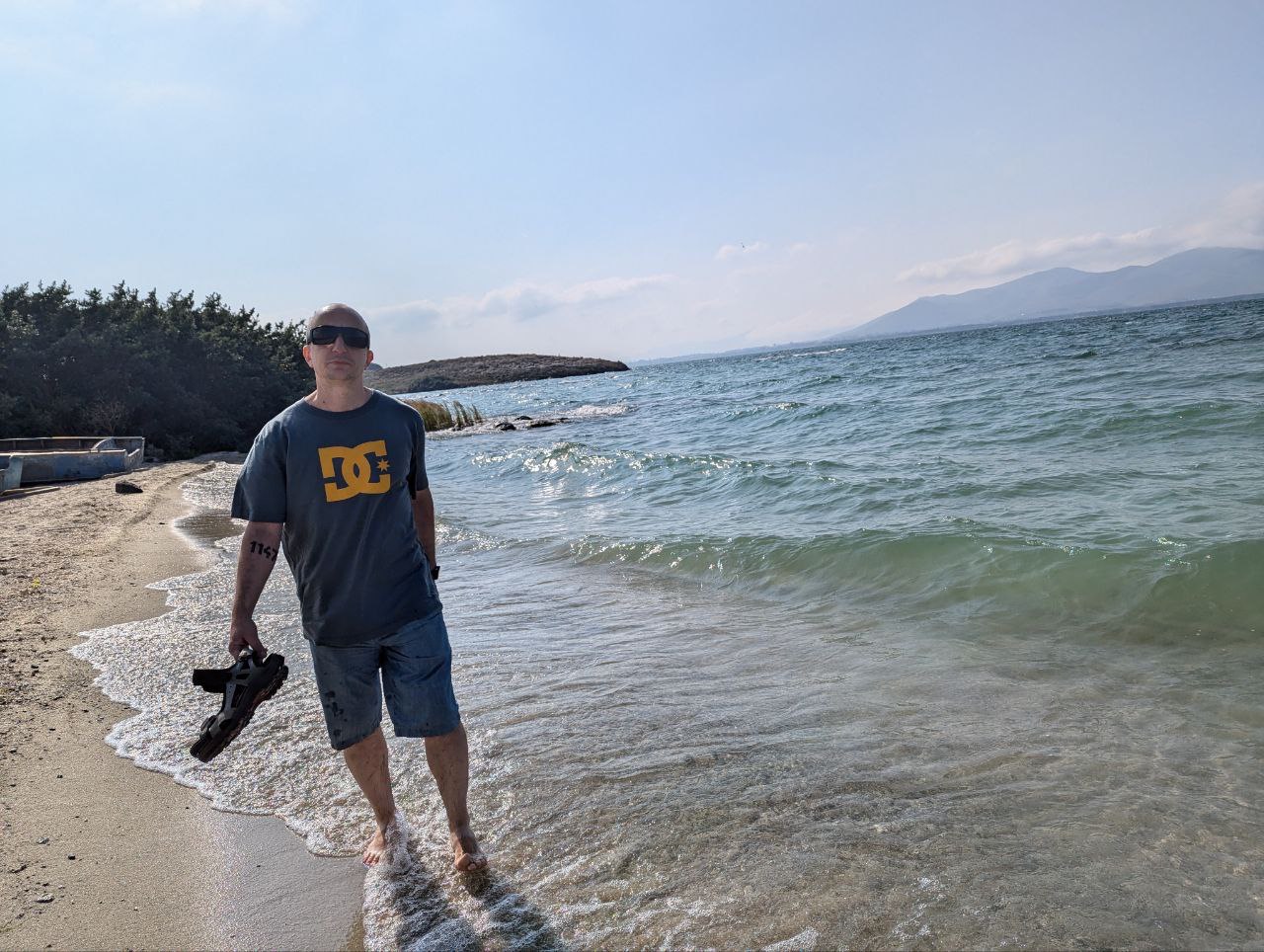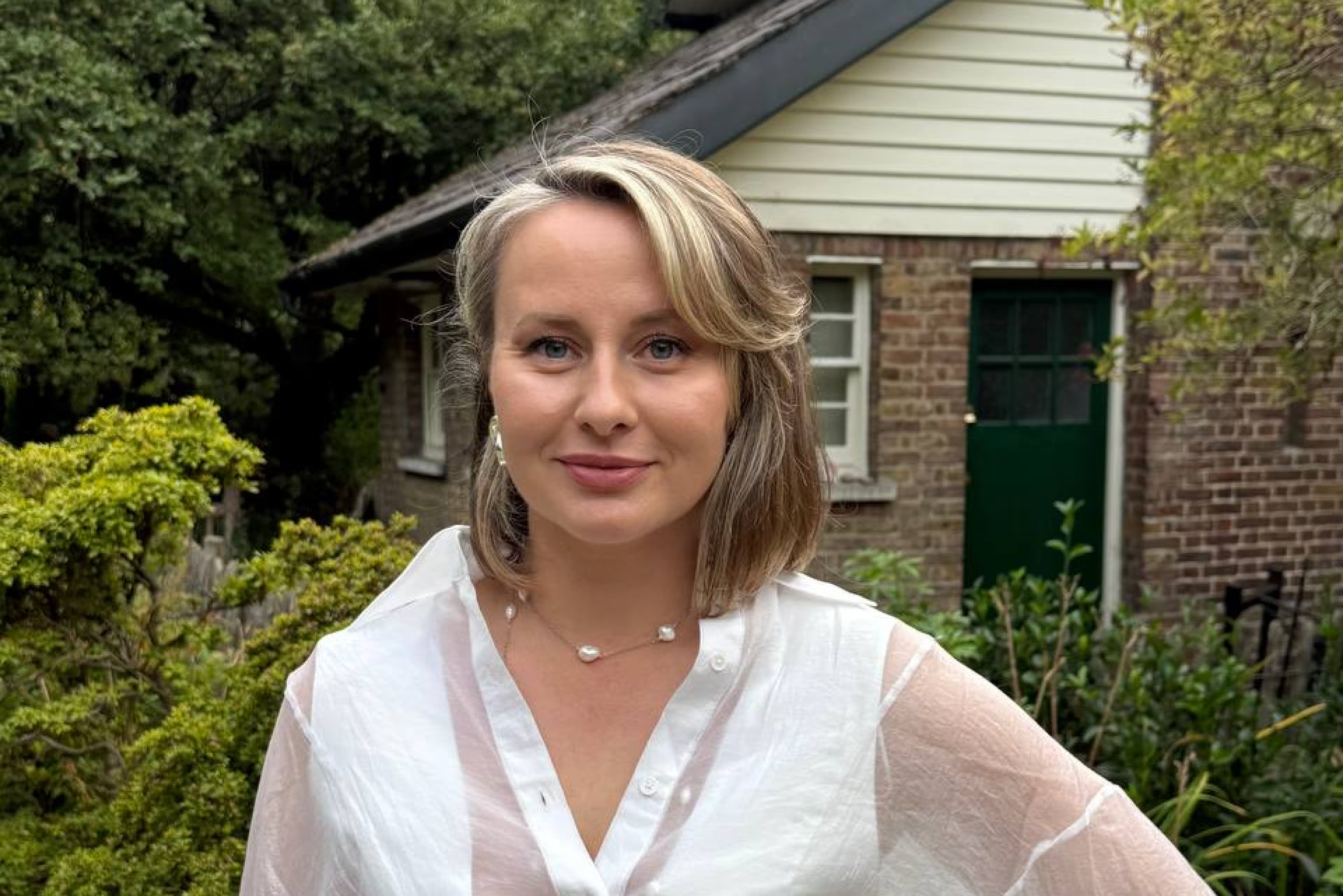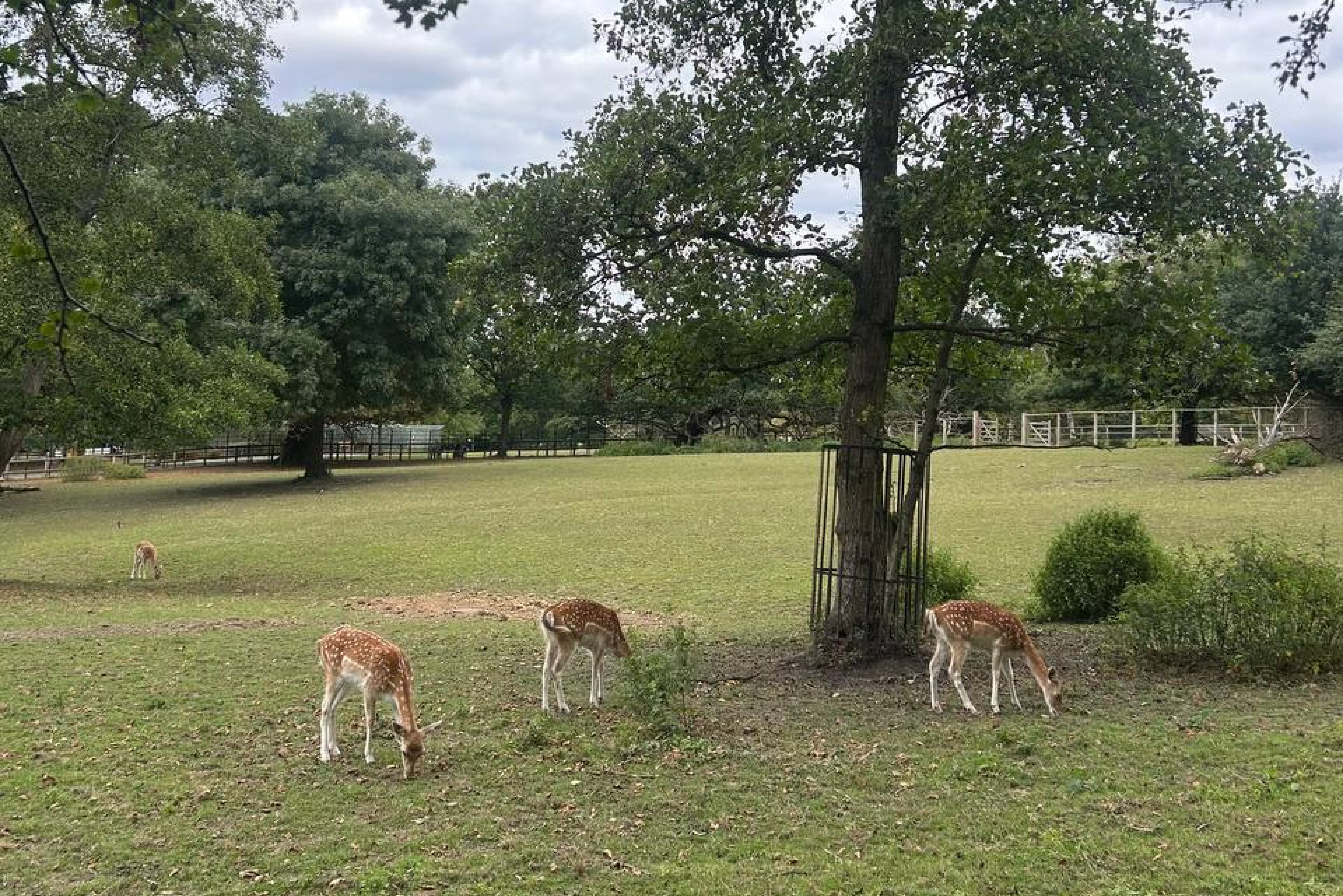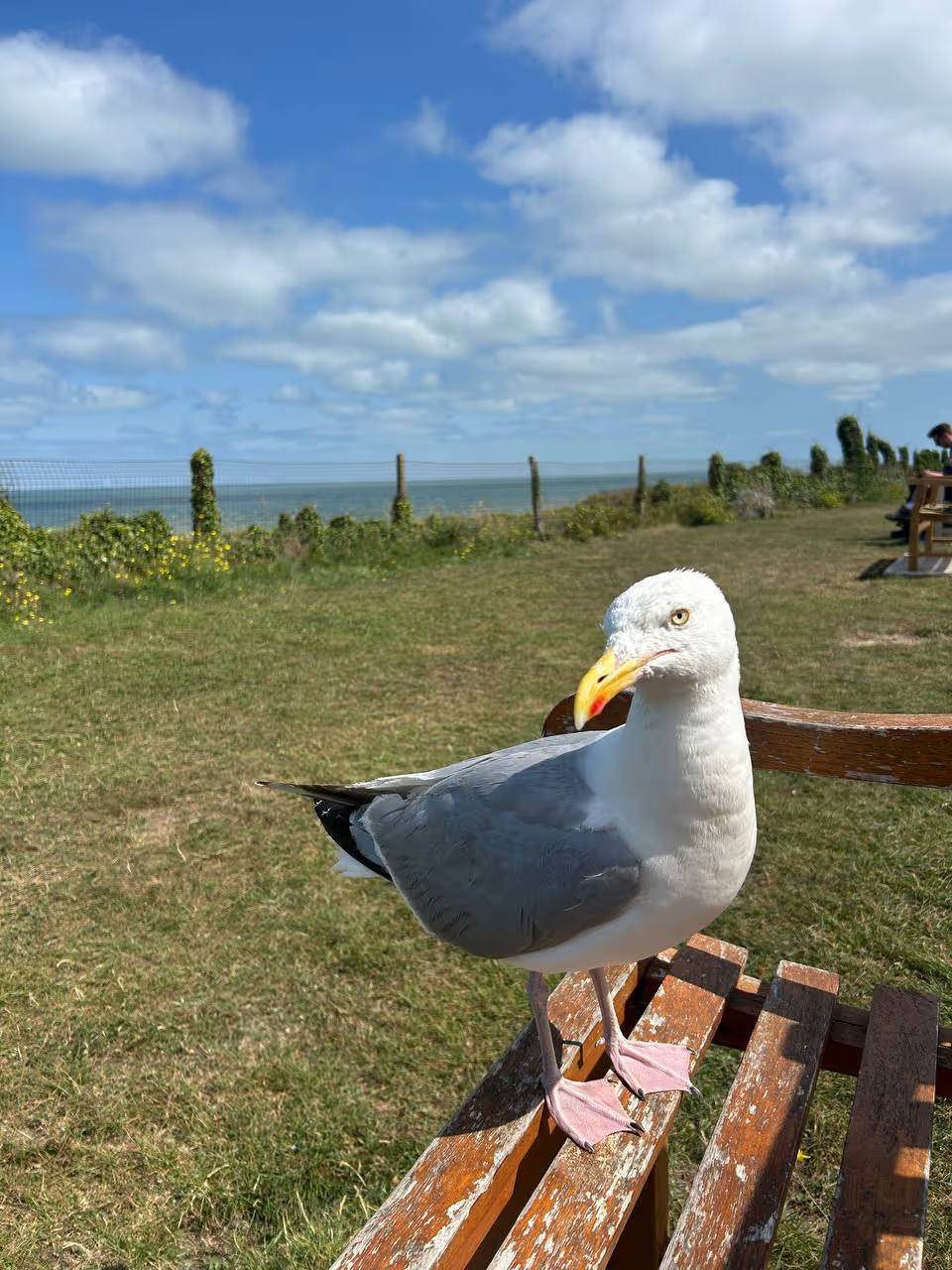

From Russia to Malaysia, then to the Baltic states, and only after that to the United Kingdom — Marina Shulga’s journey was built on consecutive steps rather than lucky coincidences. After a corporate career, she launched her own project, and in June 2025 she received an Innovator Founder visa to move to London. Here she found high taxes and tough competition, but also a unique density of ideas, technologies, and opportunities that make the city one of the world’s strongest business ecosystems. This story is told by Marina herself: with facts, conclusions, and practical advice — without embellishments, but with the inner strength that has always pushed her forward.

I was born in a small town in the Urals-Siberia region, where biographies often looked the same. My father had seven years of schooling, my mother — eight. By all probability, my future could have ended as an accountant in a lamp factory. At fourteen, I understood very clearly not who I wanted to become, but how I did not want to live — by inertia, without choice, as if my trajectory had already been drawn by someone else. That refusal of fate became the driving force of my life.
My geography started with Russian cities — Yekaterinburg, Tyumen, Moscow, St. Petersburg. Later came moves to other countries: Bulgaria, Croatia, Indonesia. I worked a lot: in some places I learned teamwork, in others endurance and tempo, in others acceptance that “perfect” never happens. At the same time, I traveled extensively: today I count 48 countries. Not for ticking boxes on a map, but to understand how people live, what they lack, what they are willing to learn, and how they make decisions.
I was late with English. At the moment when I suddenly needed the language in negotiations, the international businessman I worked for at the time told me: “Marina, learn the language — without it you’ll hit a dead end.” I spoke some German, but English was still a “distant planet.” So I sat down and started from scratch. In 2018 I came to London for the first time — in winter, when the cold creeps into your bones and the damp air doesn’t let you get warm even in the Underground. It was wet, expensive, and a bit uncomfortable. But at the same time I felt I was in a city where history isn’t locked behind glass but is still being written: universities, libraries, museums, neighborhoods where ideas turn into life. And alongside that — a completely different business rhythm: I met business developers with Russian roots, people working at the London Stock Exchange, professionals for whom international companies were the norm rather than the exception. It was a different scale and a different openness, one I wasn’t used to yet. All these impressions outweighed the high prices in cafés.

I worked a lot in education. For two years I was Commercial Director of a network of British schools — about a hundred British colleagues. That experience showed me how their business optics and work culture are arranged. Then I spent almost three years in Kuala Lumpur: Asia taught me speed and respect for processes, and at the same time opened a completely different scale. We worked with 36 countries, the company operated around the clock — 1,200 people across time zones, and this sense of a multicultural environment became my biggest breakthrough.
I returned to the UK already as a working hypothesis. I had an entire strategy based on analyzing the biographies of three thousand billionaires. I considered five countries — Portugal, Australia, New Zealand, the Emirates, and the UK. In each I looked for the context most relevant to me: in some it was a talent visa, in others a “digital nomad.” But in the end, Britain turned out to be the most interesting and accessible: here they genuinely give you a chance to try yourself both as an entrepreneur and as an employee.
I am not someone who bets on inspiration. I bet on decisions. If I put my biography in one line, it is a path of small steps against a “predetermined fate”: I learned to earn money, to manage people, to launch projects, to discover new cultures. When people ask me why I treat uncertainty so calmly, I answer: uncertainty is just an honest form of reality. There are no guarantees in it, but there is the right to choose and the right to change your mind. My internal “destination country” was formed quite early: to live so that tomorrow — even by a centimeter — is better than yesterday. Everything else is just instruments. For some, it’s an academic track; for others, a corporate ladder. For me — the ability to make decisions quickly, to work a lot, and not to be afraid of changing the plan when the facts say “it must be different.” With that optics, London stopped being “expensive and damp.” It became a platform where speed, demands, and density of opportunities matched the way I am built.

A startup visa is not about an “easy entry.” It’s about grown-up commitments. You step into the game with a tech project and a horizon of at least five years, where everything matters: from testing hypotheses to unit economics. I followed a simple logic: if the numbers add up — accelerate; if not — pivot. A pivot isn’t a failure, it’s part of a sane strategy.
In my circle almost everyone has, one way or another, already launched something of their own, so the very idea of entrepreneurship never scared me. Behind me are EdTech projects, e-commerce (design and sales of school uniforms), a chain of children’s development clubs, a marketing agency and strategic consulting for GR and business, as well as investments in real estate and rental markets in different countries. I was always launching and building something, but a technological project — that was a completely different scale. Everything changed after I became Program Director of a global business unit at the American company Xsolla and got to know Shurik Agapitov closely — a man who built a global company over twenty years and remained its sole owner. That was when I realized: real growth and the first serious millions lie in another dimension — in technology.
When I chose the visa, I treated it as an investment. Three years to show the first result is a perfectly realistic timeframe: enough to grow a project, bring it to a stable model, or sell it. And if something doesn’t work out, what remains is incredibly valuable experience. In this environment, a second chance is always worth more than the first.
I prepared for the endorsing body interview seriously. It really feels like an exam. Formally, the questions are about the market, the product, the go-to-market strategy. In reality, it’s a test of adequacy: do you understand the risks, do you have a plan B, how realistic is your view of the numbers.

The Relogate experts played a huge role in my preparation. I would compare their work to teachers who prepare students for international language exams. You may know the language, but taking the test is a different skill: there are formats, expectations, and standards. It’s exactly the same here. They helped me structure the product and the strategy so that everything was clear and properly packaged for the track’s requirements. At the interview you really feel it: you can say the same thing in two different ways, and you’ll be heard completely differently. There’s no need to fear the interview. If you truly understand your product, why you need this visa, and how you’ll handle different scenarios, everything goes smoothly.
Looking at the program in its current form, without any potential changes from the government, for me it’s one of the most effective in terms of return on investment. You only need three years to show results — and that timeframe is enough to grow a project to a stable level. From there, you can scale, develop further, or sell it at a profit. In the UK this is absolutely realistic: everything here is bought and sold quickly, and the concentration of technology and smart people per square meter is striking. Most importantly, successful performance over this three-year stretch opens the road to citizenship, which for me is no less valuable an asset than the business itself.

I entered London more pragmatically than romantically. I had already set up mobile service and a bank card from Malaysia — just a few clicks, and I had a UK number and a working account. My visa arrived on June 17, and the very next day all of this was in my hands.
Housing turned out to be a story of its own. Here landlords expect a full “financial portfolio”: résumé, contracts, bank statements, references. Practically the same package as for a visa, only for a modest room in Paddington. The price was £1,500, and if you go cheaper, the quality of life is unlikely to be acceptable. After Kuala Lumpur, the contrast was sharp: there, for $1,200, you get a condo with a pool, gym, and cleaner included; here, just a room with no extras — but in exchange, access to the market and the environment.
In the first weeks, London impressed me with its scale. Above all — its greenery: so many parks and squares that the whole city feels covered in leaves. The logistics were striking too: the Underground, buses, trains — everything is there, everything runs, though, as I quickly realized, not always as predictably as I’d like. The world’s oldest metro has a life of its own: a single broken signal can stop an entire line, and plans have to be reshuffled on the go. Still, the system usually works so that you can get anywhere in about 30–40 minutes. The weather was funny: I arrived from +32 to +22 and felt cold, while the British were complaining about the heat and the lack of air conditioning.
The food scene turned out to be the opposite of the stereotype. People say London’s food is bad, but in reality you find cuisines from all over the world — from Korean to halal markets. For me that’s important: to live in an international environment and see how multiculturalism works in daily life. Besides, my project is about retail, so I literally conduct “field research” in supermarkets — watching how staff operate, how shelves are restocked, how assortments are built.

The city is multilayered and multicultural. On a single block, you can meet ten or twenty people from different countries. The cost of living and quality food is higher here than in Asia, and healthcare and banks operate more slowly. The rhythm has its quirks — many companies effectively switch to weekend mode by Friday afternoon. But all of this is balanced by London’s energy: competition is tough but fair. If you hesitate, your option goes to someone else. Decisions have to be made quickly.
Of course, I also encounter cultural differences. In Asia, being 30 minutes late is the worst-case scenario; here, sometimes people just don’t show up at all. Yet the true-born Britons I’ve met are surprisingly kind and well-mannered, with a deep sense of respect and a real willingness to help. Getting into their inner circle isn’t easy. Most immigrants stick to their own communities — and that’s natural for a megacity: we all hold on to our familiar social “languages” and cultural codes.

My short-term horizon is all about balance: combining full-time work with the development of my startup. London runs at a very fast pace, with fierce competition and high costs, so corporate experience gives me not only stable income but also access to the scale, technologies, and data that strengthen my product. What happens next will depend on business needs: today it’s London, tomorrow it might be Cambridge or another cluster, if that’s where the tasks take me. I’m not here because I love rainy weather or high taxes. I’m here for the opportunity to build my future — faster, better, and on a higher level of complexity.
I have my own metric for personal progress. For me, “quality of life” isn’t about polish, it’s about wholeness: place, food, body, education, work, community. All of it is interconnected: relocations, visas, interviews, even “field research” in supermarkets. My working principle is simple: do it fast, then do it better.
What would I advise to those who are only at the beginning of this path? Make decisions faster. Immigration policies everywhere are moving toward restriction: timelines are getting longer, criteria stricter, windows of opportunity narrower. These cycles have already happened 20–30 years ago, then reopened, and now it’s clear that rules will tighten again. So don’t postpone — use the chance while it’s open.
Yes, you’ll pay taxes and adapt to new rules, but in return you gain safety, respect for the law, and long-term prospects. The UK is especially favorable to people with technological and entrepreneurial backgrounds — here they quickly find work, a place, and a future. And the ultimate goal is citizenship. Everything else is just a stage along the way. Startups, funds, opportunities, experience — they are all important steps, but the real reward for this journey is a passport, which allows you to build life and business with stability and freedom.

1. Make decisions faster.
Immigration “windows” are narrowing worldwide — hesitation rarely works in your favor.
2. Write an honest business plan.
Where will you get money without a venture round? What metrics will you track weekly?
3. Be ready to pivot.
It’s not a failure but a tool — build it into your strategy.
4. Calculate the economics.
Without unit economics, a good presentation won’t take you far.
5. Prepare a “rental” package in advance.
The housing paperwork is almost as dense as a visa application.
6. Remember the “price of the ecosystem.”
Money and pace of life are the cost of access to markets and expertise.
7. Find your community.
Multiculturalism is a resource that speeds up integration.